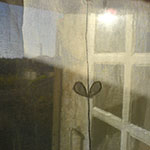Euroacademia Conferences
 Europe Inside-Out: Europe and Europeanness Exposed to Plural Observers (9th Edition) April 24 - 25, 2020
Europe Inside-Out: Europe and Europeanness Exposed to Plural Observers (9th Edition) April 24 - 25, 2020 Identities and Identifications: Politicized Uses of Collective Identities (9th Edition) June 12 - 13, 2020
Identities and Identifications: Politicized Uses of Collective Identities (9th Edition) June 12 - 13, 2020 8th Forum of Critical Studies: Asking Big Questions Again January 24 - 25, 2020
8th Forum of Critical Studies: Asking Big Questions Again January 24 - 25, 2020 Re-Inventing Eastern Europe (7th Edition) December 13 - 14, 2019
Re-Inventing Eastern Europe (7th Edition) December 13 - 14, 2019 The European Union and the Politicization of Europe (8th Edition) October 25 - 26, 2019
The European Union and the Politicization of Europe (8th Edition) October 25 - 26, 2019 Identities and Identifications: Politicized Uses of Collective Identities (8th Edition) June 28 - 29, 2019
Identities and Identifications: Politicized Uses of Collective Identities (8th Edition) June 28 - 29, 2019 The European Union and the Politicization of Europe (7th Edition) January 25 - 26, 2019
The European Union and the Politicization of Europe (7th Edition) January 25 - 26, 2019 7th Forum of Critical Studies: Asking Big Questions Again November 23 - 24, 2018
7th Forum of Critical Studies: Asking Big Questions Again November 23 - 24, 2018 Europe Inside-Out: Europe and Europeanness Exposed to Plural Observers (8th Edition) September 28 - 30, 2018
Europe Inside-Out: Europe and Europeanness Exposed to Plural Observers (8th Edition) September 28 - 30, 2018 Identities and Identifications: Politicized Uses of Collective Identities (7th Edition) June 14 - 15, 2018
Identities and Identifications: Politicized Uses of Collective Identities (7th Edition) June 14 - 15, 2018
On a Level Playing Field: European Art and Diplomacy in Asia
-
-

-
Presentation speakers
- Florian Knothe, University Museum and Art Gallery, The University of Hong Kong
Abstract:
As both a critical observer and a `consumer´ of international art and diplomacy in Hong Kong, I am interested in extending the work I have been doing with a dozen or so Western consulates by looking at their way to employ art in politics. Personally a scholar of art and propaganda in early modern Europe, I study the presence of European art and culture in Asia to analyze its value in an international, though largely foreign, 21st-century society. By adding to a limited focus on Europe itself, my paper explores how-very much by extension-some of the rich European cultures, such as France, are influential contributors to a local and ever-growing art and culture scene in East Asia, whereas others, including the UK and German-of equal standing back home-are conspicuously quiet and, so it seems, less eager to overwhelm with foreign culture and art in their particular diplomatic strategies. Along the more populous European nations represented in Asia, it is quite visible that often smaller neighbors, like Austria and Hungary, appear stronger and that they deliberately communicate their traditions and innovations-both past and future cultures – to place themselves in international societies like those in Hong Kong, Beijing and Shanghai. Here, the participation of European countries is noteworthy when art and artists as diplomats have cross-cultural and lasting impact. Although they propagate, cultural attachés practice cultural diplomacy rather than propaganda, and they use their `soft diplomacies´ to win `hard favors´. With a changing global economy, a stronger presence of financially more prudent and economically weaker nations indicates how art on a more `level playing field´ here is used to help strike business deals, win political allies and, thankfully, encourage artistic and cultural exchange between unequal partners.
-
Related Presentations

The Issue of Legitimacy - EU Action in Selected Policy Areas
- Kyriakos Revelas

Reformation of Attitudes Towards the European Integration
- Sevilay Kahraman
- Elcin Karana
















